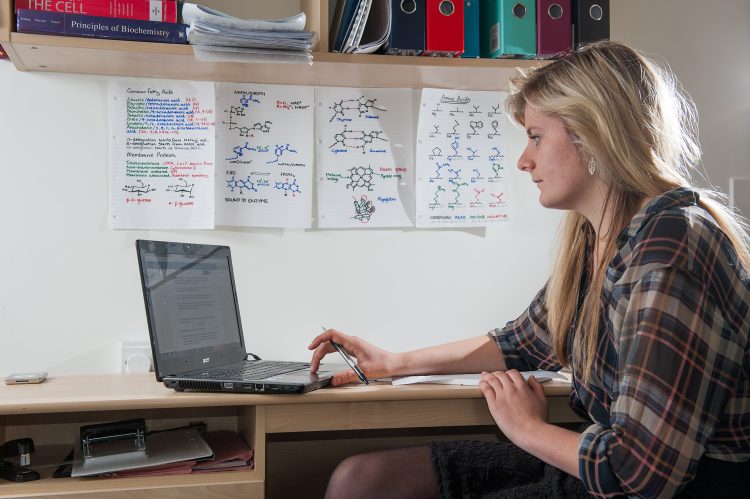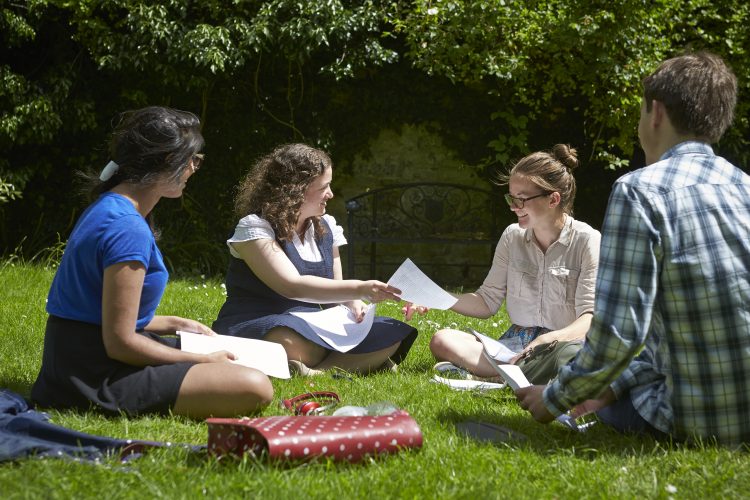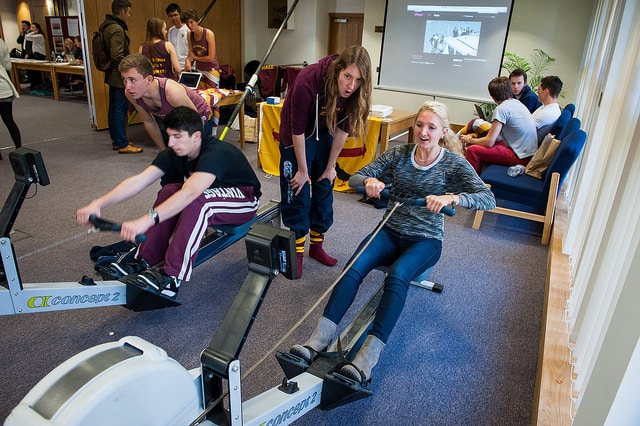Kayla – Biochemistry
Journey to Oxford
I come from a small town in the Fenlands, where I have lived my whole life. My secondary school and sixth form were at the local state school, with a student body of around 1200. Moving to a (albeit quite small) city was quite a scary step for me, and as a first-generation university student in my family, I had doubts about what to realistically expect from the university experience, especially at Oxford. The information provided prior to Fresher’s week was comforting, but I inevitably still worried. Teddy Hall is renowned for its sense of community (the ‘Hall spirit’) and I sensed this within the first week. There are so many opportunities to meet new friends and receive support in college, so don’t worry too much about that – in fact, I settled in so well I cried when I had to leave at the end of first term!
Why did you choose to study you course? What is your favourite thing about it?
Biochemistry isn’t taught as a separate discipline at A-level, but there are components of it in Biology and Chemistry. Quite typically, I knew I liked science, with a particular interest in the science of life, and the Biochemistry course at Oxford has an incredibly wide scope of areas to satisfy this curiosity.
My favourite thing about this course is being able to see the theory in action through practical lab work.
Describe your average Oxford day…
My average workday, as a second year, starts off with breakfast around 8, consecutive 9am and 10am lectures, followed by a mid-morning coffee break. In the library, I’ll often be completing some set work, such as a computing practical, a lab report, or a tutorial problem sheet/essay.
I’ll have lunch around 1pm, and likely play pool or backgammon in the JCR. Once or twice a week around lunch time I’ll instead play netball at another college, which usually extends my lunch break by a little.
At 2-3pm I’ll head back to the library and work on something else set, but usually different to my morning work – Biochemistry has a wide range of work to complete, as highlighted above. This variety is fantastic if you get stuck and need to refresh your brain whilst staying engaged with other work. On some days around 4 I’ll have another lecture, or tutorial (once or twice a week) taking it up to 5-5.30. Now I’ll usually head home for dinner (2nd years tend to live in their own houses outside of college). Later in the evening I’ll catch up with my housemates or go visit some other friends before going to bed.
Why did you decide to apply to St Edmund Hall? What is your favourite thing about it now that you’re here?
I found out on results day I would be attending St Edmund Hall, after applying to another college and receiving an ‘open offer’. Despite not choosing Teddy off the bat, I can’t imagine being anywhere else! Besides my tutors, the coffee (but mostly chocolate milk) machine in the common room and the excellent food, my favourite part about Teddy Hall really is the sense of community – there’s always someone to smile and nod at as you walk through college, and you quickly recognise all the faces here.
What helped prepare you for the admission process?
There was a certain member of staff at my school who helped Oxbridge/medic applicants, and he provided me with a wide range of things to try and prepare for my personal statement and interviews. Biochemistry, for my year at least, had no entry exam to prepare for, so revising the basics of A-level Bio and Chem was critical for some of the questions posed in the interview.
For the ‘supercurriculars’ in my personal statement I attended a couple summer schools, extending my knowledge beyond the scope of the A-level syllabus and giving a flavour of university life, as well as keeping up with new stories (in particular for me, I read up on CRISPR and had the opportunity to discuss it during interview). I was fortunate enough to have a couple of mock interviews organised for me, which were incredibly nerve-settling! If this isn’t possible, vocalising your thoughts on a topic, by speaking to family or friends, or even your dog, helps to prepare for interviews. Remember: interviewers are looking to understand your thought process and see how you approach problems, not to see what you already know.
What was the biggest misconception you had about studying at Oxford before you came?
My biggest misconception about studying at Oxford was that I would be intimidated by other students and my tutors. In reality, my tutors are lovely, and if I struggle on a topic they are there to help me understand. I feared I would feel inferior to students who had the opportunity to go to better schools, and I wouldn’t be able to relate to them. Many students here, especially at St Edmund Hall, are from similar backgrounds to me. Of course, there will always be people with more or less privilege than you everywhere in life, but I’ve always found the environment at Teddy Hall inclusive and relaxed, regardless of who I’m in a room with.
What would you tell your 17-year-old self about applying and studying at Oxford/St Edmund Hall now?
Apply! I was skeptical about applying, as no one in previous years at my sixth form had been a successful applicant to Oxford. However, in my school year, 3 of 5 that applied gained places (across different colleges). There is very little to lose by applying, and you might regret not knowing what would’ve happened if you never try!
Where next?


Creative Writing
